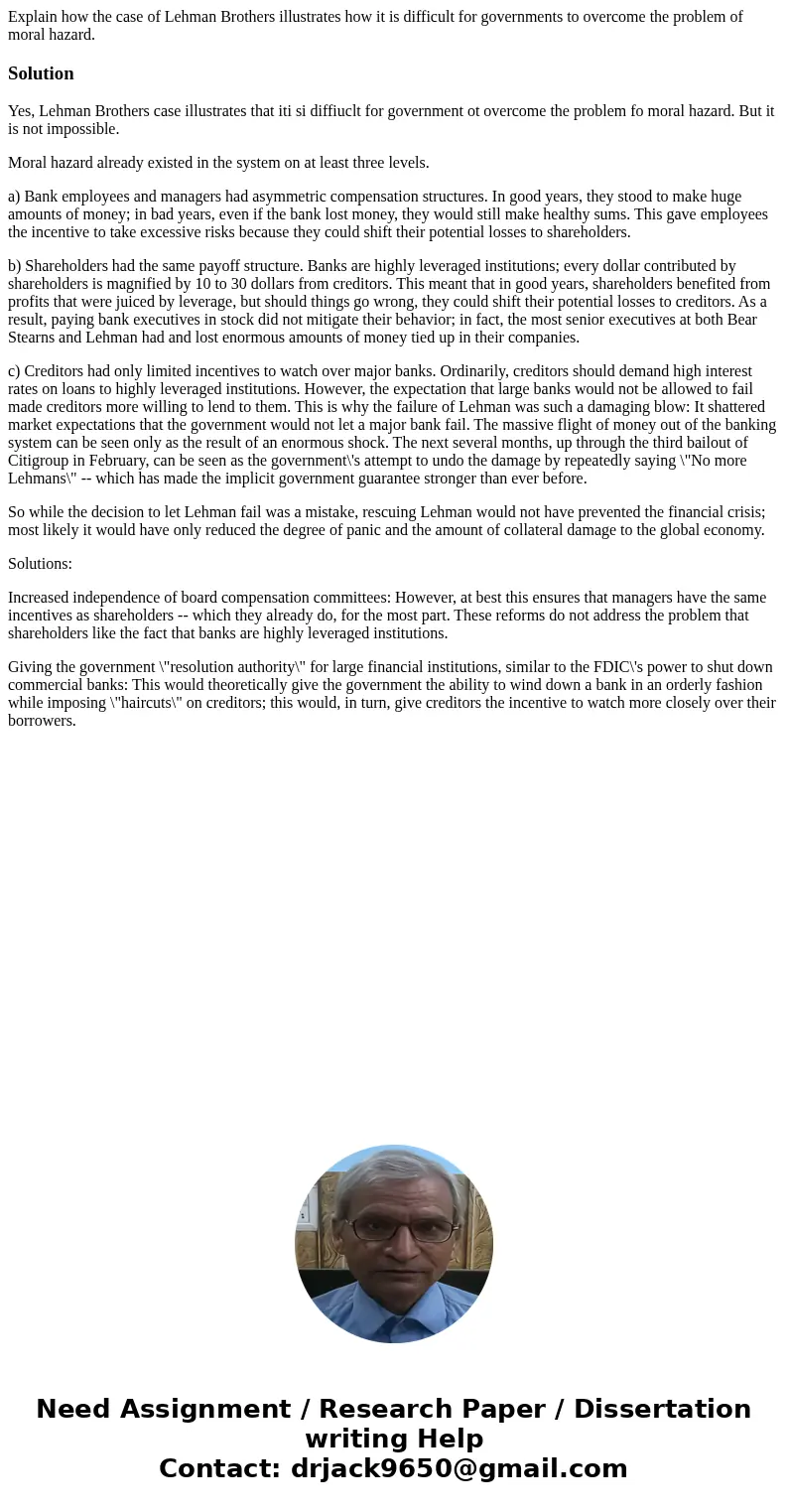Explain how the case of Lehman Brothers illustrates how it i
Explain how the case of Lehman Brothers illustrates how it is difficult for governments to overcome the problem of moral hazard.
Solution
Yes, Lehman Brothers case illustrates that iti si diffiuclt for government ot overcome the problem fo moral hazard. But it is not impossible.
Moral hazard already existed in the system on at least three levels.
a) Bank employees and managers had asymmetric compensation structures. In good years, they stood to make huge amounts of money; in bad years, even if the bank lost money, they would still make healthy sums. This gave employees the incentive to take excessive risks because they could shift their potential losses to shareholders.
b) Shareholders had the same payoff structure. Banks are highly leveraged institutions; every dollar contributed by shareholders is magnified by 10 to 30 dollars from creditors. This meant that in good years, shareholders benefited from profits that were juiced by leverage, but should things go wrong, they could shift their potential losses to creditors. As a result, paying bank executives in stock did not mitigate their behavior; in fact, the most senior executives at both Bear Stearns and Lehman had and lost enormous amounts of money tied up in their companies.
c) Creditors had only limited incentives to watch over major banks. Ordinarily, creditors should demand high interest rates on loans to highly leveraged institutions. However, the expectation that large banks would not be allowed to fail made creditors more willing to lend to them. This is why the failure of Lehman was such a damaging blow: It shattered market expectations that the government would not let a major bank fail. The massive flight of money out of the banking system can be seen only as the result of an enormous shock. The next several months, up through the third bailout of Citigroup in February, can be seen as the government\'s attempt to undo the damage by repeatedly saying \"No more Lehmans\" -- which has made the implicit government guarantee stronger than ever before.
So while the decision to let Lehman fail was a mistake, rescuing Lehman would not have prevented the financial crisis; most likely it would have only reduced the degree of panic and the amount of collateral damage to the global economy.
Solutions:
Increased independence of board compensation committees: However, at best this ensures that managers have the same incentives as shareholders -- which they already do, for the most part. These reforms do not address the problem that shareholders like the fact that banks are highly leveraged institutions.
Giving the government \"resolution authority\" for large financial institutions, similar to the FDIC\'s power to shut down commercial banks: This would theoretically give the government the ability to wind down a bank in an orderly fashion while imposing \"haircuts\" on creditors; this would, in turn, give creditors the incentive to watch more closely over their borrowers.

 Homework Sourse
Homework Sourse